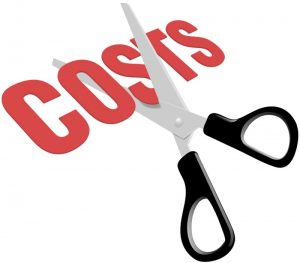 We’ve all witnessed it – the seemingly overnight success of some startups that begs the question “what am I doing wrong here?” Is it the idea? The timing? The commitment? Why do some companies transform into breakout brands, while others struggle along?
We’ve all witnessed it – the seemingly overnight success of some startups that begs the question “what am I doing wrong here?” Is it the idea? The timing? The commitment? Why do some companies transform into breakout brands, while others struggle along?
In my 25 plus years of working with entrepreneurs and startups, I’ve noticed three similarities between the companies that skyrocket vs. the ones that sputter out. Here are three ingredients that will fortify your brand for immediate growth.

 Because it’s a video platform, YouTube may not initially seem like a suitable platform for marketing a business—but I believe that if used the right way, your business can definitely benefit from it.
Because it’s a video platform, YouTube may not initially seem like a suitable platform for marketing a business—but I believe that if used the right way, your business can definitely benefit from it.
 Building a brand is about building a relationship with your customers. For this relationship to be long-lasting, it has to be based on something meaningful. That comes when a brand satisfies a real need, either better or in a different way to any other brand available.
Building a brand is about building a relationship with your customers. For this relationship to be long-lasting, it has to be based on something meaningful. That comes when a brand satisfies a real need, either better or in a different way to any other brand available. Many global companies, like Coca-Cola, Nike, Google, Intel and Microsoft, choose to use the same brand name in multiple countries.
Many global companies, like Coca-Cola, Nike, Google, Intel and Microsoft, choose to use the same brand name in multiple countries. Operational margins are narrowing; leaving business owners constantly looking for ways to reduce business running costs and increase profits.
Operational margins are narrowing; leaving business owners constantly looking for ways to reduce business running costs and increase profits. More small business owners today are feeling optimistic about the economy. Nevertheless, the majority say the number of risks they are taking has remained the same over the past six months.
More small business owners today are feeling optimistic about the economy. Nevertheless, the majority say the number of risks they are taking has remained the same over the past six months. Whatever the mind of man can conceive and believe, it can achieve. –
Whatever the mind of man can conceive and believe, it can achieve. –
 Making a career change can be a challenging endeavour in the best of times, so this economy certainly doesn’t help. Sadly, a lot of people allow that to keep them frustrated and stuck–not just for the present moment, but for the long haul. They think about making a change, decide they can’t do it, and stick their dissatisfied noses right back down to the same disheartening grindstone. They will repeat the process the next year, and the year after that.
Making a career change can be a challenging endeavour in the best of times, so this economy certainly doesn’t help. Sadly, a lot of people allow that to keep them frustrated and stuck–not just for the present moment, but for the long haul. They think about making a change, decide they can’t do it, and stick their dissatisfied noses right back down to the same disheartening grindstone. They will repeat the process the next year, and the year after that. Jason just announced that he got a great deal on tickets for his vacation. And Emily dropped a vacation request on your desk this morning. And now, Melanie is talking about her planned summer cruise. You’re happy your employees are looking forward to summer vacations – until you look at the dates and realise that they’re all for the same week in August. Now what?
Jason just announced that he got a great deal on tickets for his vacation. And Emily dropped a vacation request on your desk this morning. And now, Melanie is talking about her planned summer cruise. You’re happy your employees are looking forward to summer vacations – until you look at the dates and realise that they’re all for the same week in August. Now what? Singularity is near. The natural progression of human evolution with a just little twist— technology. In other words, super intelligence will soon become a part of our daily lives and man will be merged with machine. Sure it sounds wild, but just think about what we have been able to achieve over the past 50 years alone.
Singularity is near. The natural progression of human evolution with a just little twist— technology. In other words, super intelligence will soon become a part of our daily lives and man will be merged with machine. Sure it sounds wild, but just think about what we have been able to achieve over the past 50 years alone.